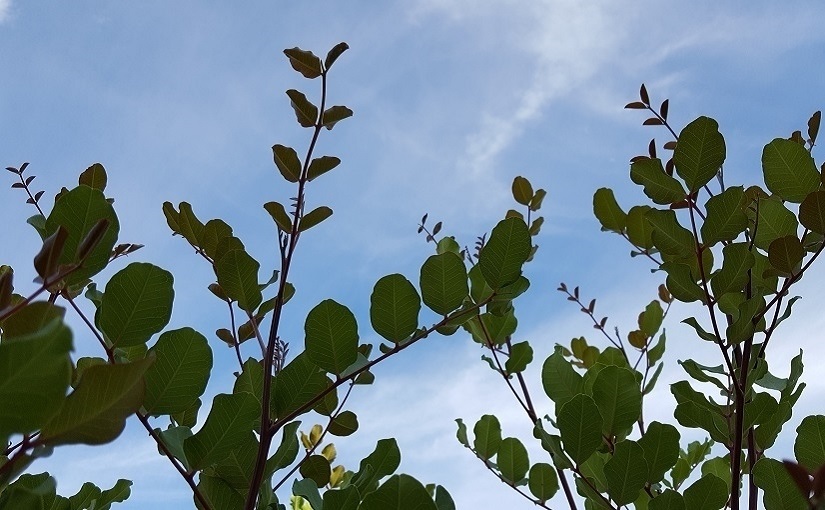Likely my most ‘British’ topic so far, but it intrigues me how much weather and climate might shape our outlook on life and day to day moods. How we respond to and live within our environment seems so important if we’re to create harmony within ourselves and in the world at large.
Whether surroundings leave us feeling relaxed and warm, or lead us to ‘battle’ against heat or cold could presumably impact our basic psychological makeup: how at ease, vigilant or protective we are. Maybe that might even foster tendencies toward optimism or pessimism, as we feel ‘welcomed’ by the world around us or uncomfortable within it.
Anecdotally, people generally seem happier, more outgoing and open to others on sunny days – as if the soul soars and we’re all happy to be alive. Persistently cold or wet weather might leave us frustrated, inward, starved of sunlight. But then unusual events such as snow or storms more often seem to bring out community spirit and childlike appreciation of the power of nature.
And I suppose it’s difficult to gain a real sense of the extent to which all this influences us as people, because differences in climate and culture must almost go hand in hand: geographical locations having shaped agriculture, seasonal patterns of work and cultural traditions throughout the year (see Notes One). Culture and nature must be quite closely interwoven, I would’ve thought.
These days we may have the ‘luxury’ of shopping around or opting out of seasonal realities – travelling further afield to ensure we have a reasonable summer holiday, possibly moving country if that climate and lifestyle suit us better, or just generally working and living more independently of nature’s moods – but it’s arguably not a relationship we can or should forget about entirely (Notes Two).
Whether we still live in close connection with it or not, nature undeniably continues to sustain us in countless incredible and unfathomable ways. How could we exist without an environment to live in, and what would such a life be like? So much of value seems to come from experiencing the joy, wonder and variety of nature.
Slightly paradoxically, it appears we’re both losing touch with and becoming overly sensitive to nature. Life now tends to take us a step or two away from engaging with our environment: work and culture not being so tied to the rhythms of nature, it can be more an inconvenience than a reality. And alongside that – possibly partly because of it – nature itself seems to be struggling, adapting to all we’re throwing at it.
Maybe that’s the thing: having detached ourselves from nature’s realities we’re not acting so much in harmony with it, not actively tending it or considering our impacts, while also having these artificially heightened reactions to events which are now communicated in sensationally dramatic tones (Notes Three).
Ultimately, maybe all this really signals is the need to re-create more meaningful relationships with our environment, to treat it with understanding rather than intolerance or indifference?
Notes and References:
Note 1: Culture and the passing of time
Note 1: Aesthetic value of nature
Note 2: Nature speaks in many ways, do we listen?
Note 2: What if it all means something?
Note 3: We may as well laugh
Note 3: Anger as a voice

